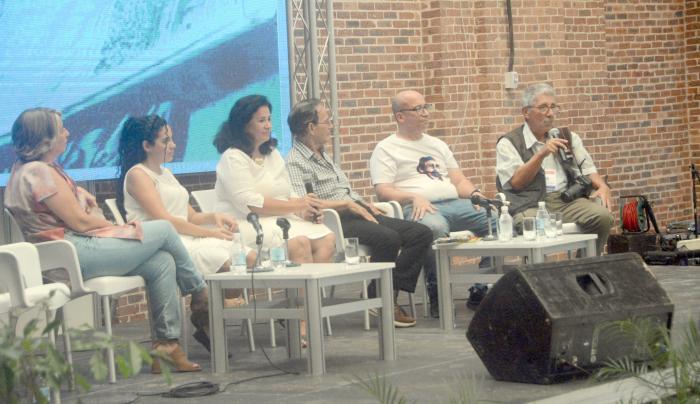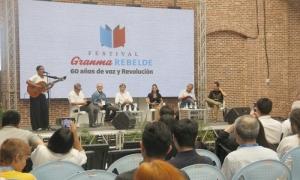

During the First Granma-Rebelde International Festival, nearly twenty media outlets and projects linked to left-wing parties and organizations presented proposals to promote a press capable of bringing transparency to the reality of their peoples.
The event, which included panels, keynote speeches, and spaces for dialogue with the public, brought together journalists, intellectuals, and communicators committed to alternative and emancipatory communication.
One of the most notable panels was Fidel in the press: the leader who wrote his own history, moderated by journalist Katiuska Blanco and featuring several media professionals. At the meeting, anecdotes were shared that highlight the intrinsic link between the media and the Commander-in-Chief:
"Fidel was meticulous with his choice of words. He knew he had to reach the people somehow, and he did so by defending himself with his pen," said journalist Yunet López Ricardo.
For his part, intellectual Ignacio Ramonet emphasized that the historic leader constantly used the press. "One example was when he was in the Sierra Maestra and American journalist Herbert Matthews, in his interview, revealed that he was alive," he recalled.
Subsequently, 17 national and international media outlets exhibited samples of their work and shared immersive strategies to strengthen committed journalism.
Among them was Nhân Dân, from Vietnam, which is committed to leveraging artificial intelligence and training all its staff in these technologies. However, the media outlet has not forgotten its tradition and pays tribute to a quote from Ho Chi Minh: "It will help us improve our productivity and our political level every day."
Thanks to its multilingual digital platforms, innovative practices such as 3D mapping, and a team of correspondents deployed in all its provinces and in six countries, Nhân Dân has been awarded the Order of the Golden Star and rigorously documents any political or social event that occurs in that heroic territory.
The deputy director of Multimedia Ideas Development, Edilberto Carmona, highlighted the group's innovations, including a mobile application from Cubadebate. "Everything we do—both on that digital platform and on Mesa Redonda, the Fidel Castro Ruz Center, Con Filo, and Cuadrando la Caja—responds to the ideas of the Commander-in-Chief," he said.
On the third day of the Festival, a panel discussion entitled Experiences of Articulation for Another Possible World was held, attended by renowned intellectuals and representatives of communist parties and other left-wing social organizations. One of the panelists, José Luis Centella, President of the Communist Party of Spain, warned that "the gunboats against Venezuela are aimed at all of Latin America" and stressed the urgency of establishing a new multilateral order.
Meanwhile, Fernando Luis Rojas, coordinator of the Cuban chapter of the Network of Intellectuals and Artists in Defense of Humanity, reflected on the need to build a cross-cutting position in all areas of struggle.
As a symbolic sign of resistance, the Mural of Dignity was unveiled, a work by graphic artists condemning the economic, commercial, and financial blockade imposed by the United States against Cuba.















